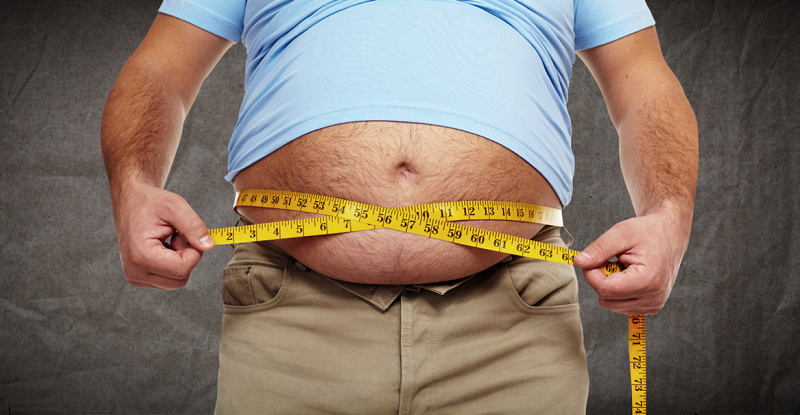
Why You Keep Gaining Weight After Dieting!
posted on: March 20, 2017. posted in:
We've had a question sent to us privately...
"Okay, I need some advice. Since losing 40kgs at SW and realising that their plan is designed to keep me going back I've adopted eating good natural food that I prepare and cook myself 80% of the time. When I do eat out I eat good quality. No junk. I also train at the gym with HIIT Body Pump and weight sessions 5 times a week. I'm eating the calories to sustain me and no more and creating a deficit with exercise. Thing is I'm piling on the weight again at 1.5kgs a week. It's depressing. My body fat % is the same as it was a year ago. What do you think I should be doing?"
If you've following our fan page you'll have seen we've been discussing the science of "persistent metabolic adaptations", the reason why the body regains weight after dieting. It's pretty complicated stuff. So let's start with the basics by answering...
What is an ADAPTATION?
Put simply, adaptations are "adjustments to environmental conditions". Some familiar examples:
Waiting for a bus in winter and starting to shiver. Shivering is an adaptation that heats our body in a COLD environment.
Sitting on a hot bus in summer and starting to sweat. Sweating is an adaptation that cools our body in a HOT environment.
Lying on the beach and getting a tan. Tanning is an adaptation that blocks UV rays in a very SUNNY environment.
Sitting in dark room and your pupils dilate. Pupil dilation is an adaptation that allows us to see better in a DARK environment.
Your body is adapting to its environment all the time, literally changing itself on a cellular level, to help you survive. Right now, wherever you are, reading this, your body is adapting and changing to suit your current environment.
So we're all familiar with cold environments, hot environments, light environments and dark environments.
But what about...
Low calorie environments and high calorie environments? What kind of adaptations do you think happen there?
Picture living in a low calorie environment. A place where food and calories are in very short supply. This might be a famine, or more likely for all of us here, a modern day diet.
How do you think the body would ADAPT to a shortage of calories, helping you survive the threat of starvation?
Well there are three main adaptations.
1. Metabolism slows down to conserve energy
2. Appetite increases to find more energy, and
3. Fat storage increase to store more energy.
Think about it. If you're living through a famine, your best chance of survival is if your body BURNS LESS ENERGY (metabolism slowing down), EATS MORE ENERGY (appetite increasing) and STORES MORE ENERGY (fat storage increasing).
These three adaptations to our energy balance have helped our species survive for 1000s of generations, through 1000s of famines. But in the modern world they are working against us.
Repeated diets (i.e. repeated cycles of Slimming World) convince your body it is living in a low calorie environment. Over many months and years it gradually adapts itself to this famine environment by slowing down your metabolism, increasing your appetite and increasing the size of your fat stores.
And the more you diet, the slower your metabolism becomes, the higher your appetite becomes, and the better your body becomes at STORING FAT.
Obesity isn't a disease.
It is the outcome of these three adaptations. It is your body getting more and more ADAPTED to your low calorie environment.
Think of it like this.
A man who goes to Spain for a few days might develop a very light tan. But a man who moves to Spain and lives there for many, many years might develop a very deep, rich tan, giving him long term protection from the sunny environment.
Equally...
A man who under eats for a few weeks might develop a bit of excess fat. But a man who under eats for many, many years might develop obesity, giving him long term protection from the low calorie environment.
And here's where it gets, well, bad.
The man who moves back from Spain might maintain his tan for many weeks and months, even though he's no longer in a sunny environment.
Equally...
The man who stops dieting might maintain his excess fat for many weeks and months, even though he's no longer in a low calorie environment.
Ta dah!
You've just learned the science of "persistent metabolic adaptations", the reason why dieters get fatter and fatter long term. Even when they stop dieting.
It's a real bummer.
And it's why Rebelfit is so ANTI-DIETS.
The good news? These adaptations are reversible. But it takes a long, long time, a lot of very good nutrition, and a lot of regular exercise. You effectively have to convince your body it is living in a high calorie environment, where it is safe for the body to burn off its fat stores. A place where there is so much food, it has no need for lots of excess fat.
It sounds to me like you're doing everything right. My guess is that you just need a bit of "expectation management". You ready?
When you stop dieting expect...
~ 1 year of continued fat gain.
~ 1 year of weight maintenance.
~ 3 years of reversing the damage.
The first year is the hardest for ex-dieters because, like you, they often do everything right and can't understand why they're STILL GAINING WEIGHT. Which is a bit like coming back from 20 years in the sun and expecting your tan to disappear in a few weeks.
Just understand that the regain you're experiencing now is normal. It's not because you're lazy, or lacking willpower, or not eating the right foods. It's because your body has developed "persistent metabolic adaptations" to your long term, low calorie, dieting environment.
Give it time.
Your weight will level out.
Then you can start reversing it.
Be patient. Stay off your scales. Follow Rebelfit and do it the right way. NEVER go back to diets. NEVER be tempted to diet again. You will only damage your body more.
Liam
p.s. If you'd like help and support recovering from the damage done by dieting, please check out our next mission which launches this April.






